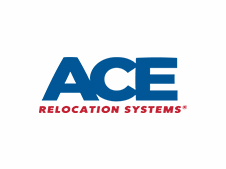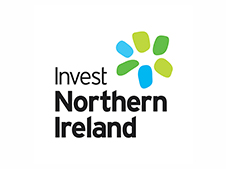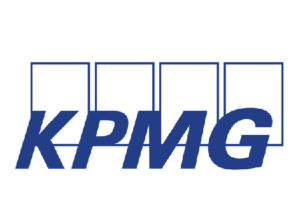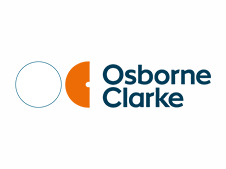On October 3rd, 2018, the BABC teamed up with Premier Members Werqwise who hosted the RBS and Grant Thornton Sponsored, ‘Fintech and The Consumer’ an event that delved into the latest trends affecting the sector.
Over 50 guests joined us at Werqwise’s state of the art co-working space at 149 New Montgomery Street to hear from our four panelists from various backgrounds in the Financial industry. Their insights, experiences, and predictions on the Financial Technology industry was the forecast in the evening. The panelists brought their experiences from different areas of the industry such as Innovation & Solutions, Legal Practice, Innovative & Disruption startup and a CEO of an industry leading membership body dedicated to the financial sector.
BABC President Melissa Harkcom took to the stage first to welcome the audience and thank the speakers, sponsors, volunteers, and attendees on behalf of the BABC Northern California branch.
Mark Heslop of Nomis Solutions opened proceedings by highlighting the incredible group of panelists that were on show and expressing how honored he was to be moderating such an event. The panel event kicked off with moderator Mark introducing the panelists Naresh Vyas of RBS, Miles Celic of The City UK, Pia Thompson of LendUp and Patrick Penzo of Onfido.
The first topic of the evening was what where the interesting themes in the current fintech industry which each panelist discussed in relation to their own businesses. Naresh of RBS, looked into three main themes that he found interesting. Points Solutions, Neo banking which is an institution that provides some combination of checking accounts, savings accounts and debit cards via digital channels, primarily mobile without any physical bank branches and different adjacencies including insurance for example.
Patrick of Onfido looked into how banks can and are reinventing themselves through technology companies. Delivering better servicing through technology is a huge focus point with a lot of banks being challenged by the technological advances that are on the market. Pia from money lending company LendUp looked into who exactly are the consumers and what is available for lower-income consumers in relation to fintech. She can see a trend starting to develop and in her opinion, much will have to change to open up fintech to all income classes. Miles of The City UK can see the trends of firms partnering up and building on each other’s expertise. He also went onto the rise of fintech in the US and UK saying that there is a good steady increase in regards to for Asian regions developing and trailing at a far quicker pace. In the order for the US and the UK to catch up with the Asian markets, there are various measures and variable reasons that need to be addressed before moving at that sort of rapid development pace.
RBS had a video played which showcased their AI (Artificial Inelegance) customer service representative CORA. When asked about how CORA came about, Naresh said that the concept came to light in 2015 and after various different trials of IBM Watson. Intensive trials were used with all types of different customer services problems that are related to RBS and they have has this function now available on Amazons Alexa, Google and Apples voice activation features respectively. Patrick voiced in on this by highlighting the huge requirements of AI in which Onfido’s platform depends on. He felt as if these AI machines would take human jobs but that does not seem to be the case so far in the industry because of the support these functions need.
Onfido then had their video played demonstrating as to how their company works. Although Pia liked the concept of Onfido she did question whether there was or will be a privacy issues with how their platform works. He responded by saying it was all about finding the right balance on privacy issues with the consumer. With trying to make the company user-friendly they hold their privacy issue on high regard. “ Onfido’s business model is based on four pillars with privacy being one of those” Naresh questioned whether or not the consumer is trusting such data with startups and whether the majority of consumers will feel more secure with well-established banks. Miles echoes this statement by backing that approach that Onfido needs to gain trust from the consumer.
On the topic of trust from the consumer, Mark posed the question to Pia as to how she gained trust with 2012 founded LendUp. She gave us a brief background as to how LendUp operates. The objective of LendUp is to disrupt in the Payday loan market by offering loans to consumers that would be turned away from your more traditional money lenders. She feels as from the outside looking in, their regulation issues are viewed as very suspect but LendUp are trying to educate financial regulators and instead of researching their business model, they need to understand the concept more. She feels as if nobody can budget more efficiently than lower class income consumers and finds offense in that they cannot receive loans. “People from all backgrounds should be able to make their own decisions”,
When asked about Fintech Banks evolving, Miles Celic insists that there must be a regulation to protect the consumers more. His example of this was the terms and conditions that the regular consumer receives off banks. He insists that very few people read through these terms and conditions because most of them are about the same length as “Hamlet”. Pia supported this statement by pointing out that the regulators know that people don’t look into the Terms and Conditions and it unfairly leaves the consumer at a disadvantage. Patrick agreed with these statements saying there has to be an opportunity to bridge the gap between the consumer and regulator.
Mark brought the panelists onto the topic of competition in the market with Amazon reportedly interested in bringing their business into the financial industry. Miles jumped on this topic by expecting Amazon not to come into the industry strongly if they do at all. He feels as if it will be to much hassle from regulators for them and it is an industry they do not have to enter. He pointed out various ways in which they can get involved by way of small lending and discounted product systems. Miles can see deeper sophisticated players coming into the equation and companies need to be careful not to come diving into the industry. Pia questioned what Amazon’s motives would be and felt as if they are going to rival the biggest banks on the market they will have to all out. This was agreed by all of the panels.
To round up the evening the panel were shown a three-minute video of 2020 banking technology and asked was this as close as the year 2020. The video featured highly sophisticated AI used by consumers on their banking devices that network together to make user experiences more user-friendly. The video also featured how ads will appear of browsing sites from your history of discussing and researching particular products. Naresh felt it is not far away but 2020 is too soon. He gave his prediction to the year 2023. Patrick felt as if this technology cannot be rushed and there is so much more to do before that step is taken. Pia felt as if advertising is already appearing for related searches. She felt as if there is a privacy concern there for consumers but the ease of access will always trump. Miles closed off the discussion by insisting that there is a data issue with that type of concept. He feels that people are not wanting to give away data like before. The data is running out and governments are not willing to release such data due to privacy concerns. He did hint that there is an unnamed search engine who are gearing up on a big raid for data so what the future will hold, only time will tell.
For those that were unable to attend watch the full panel discussion below












































